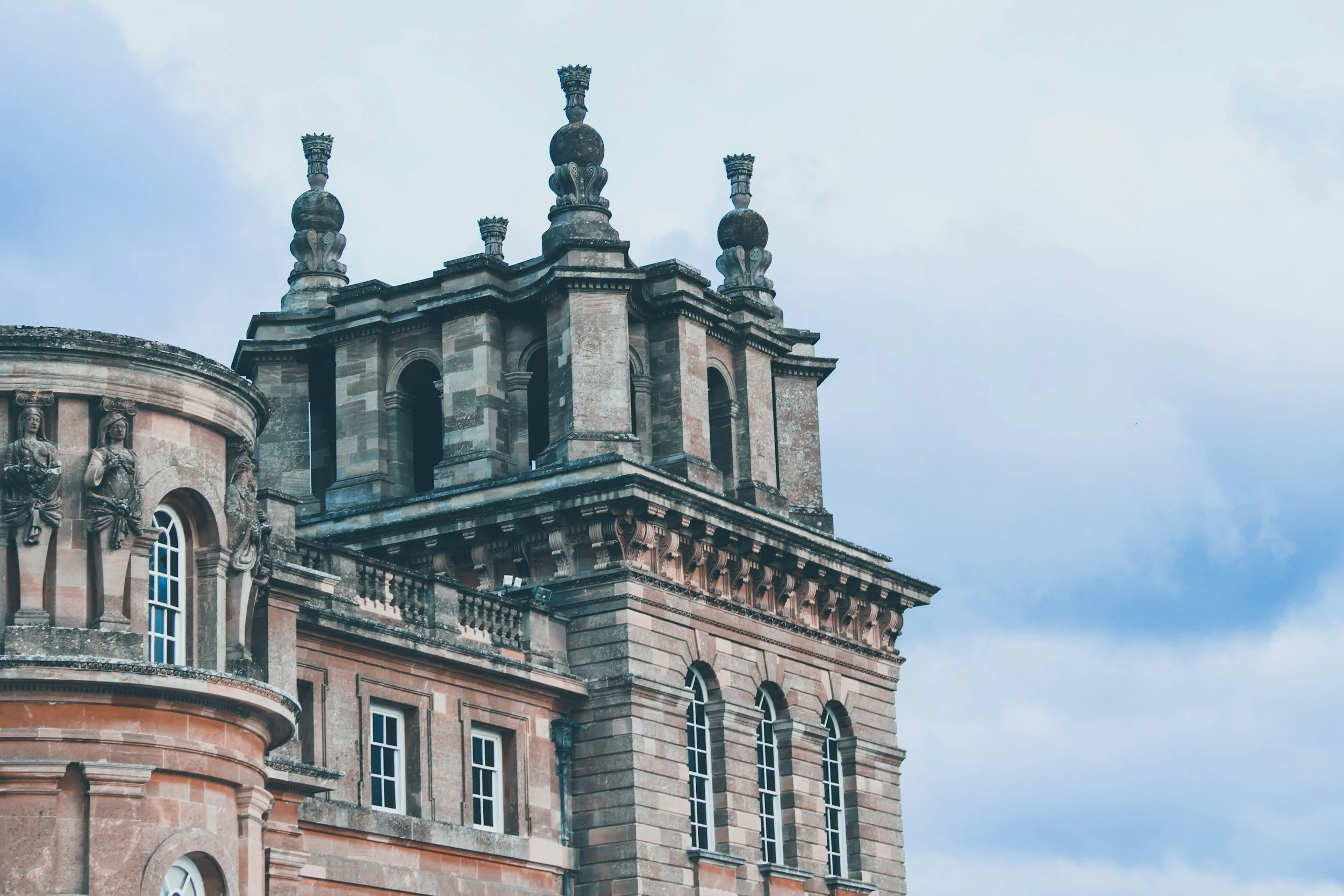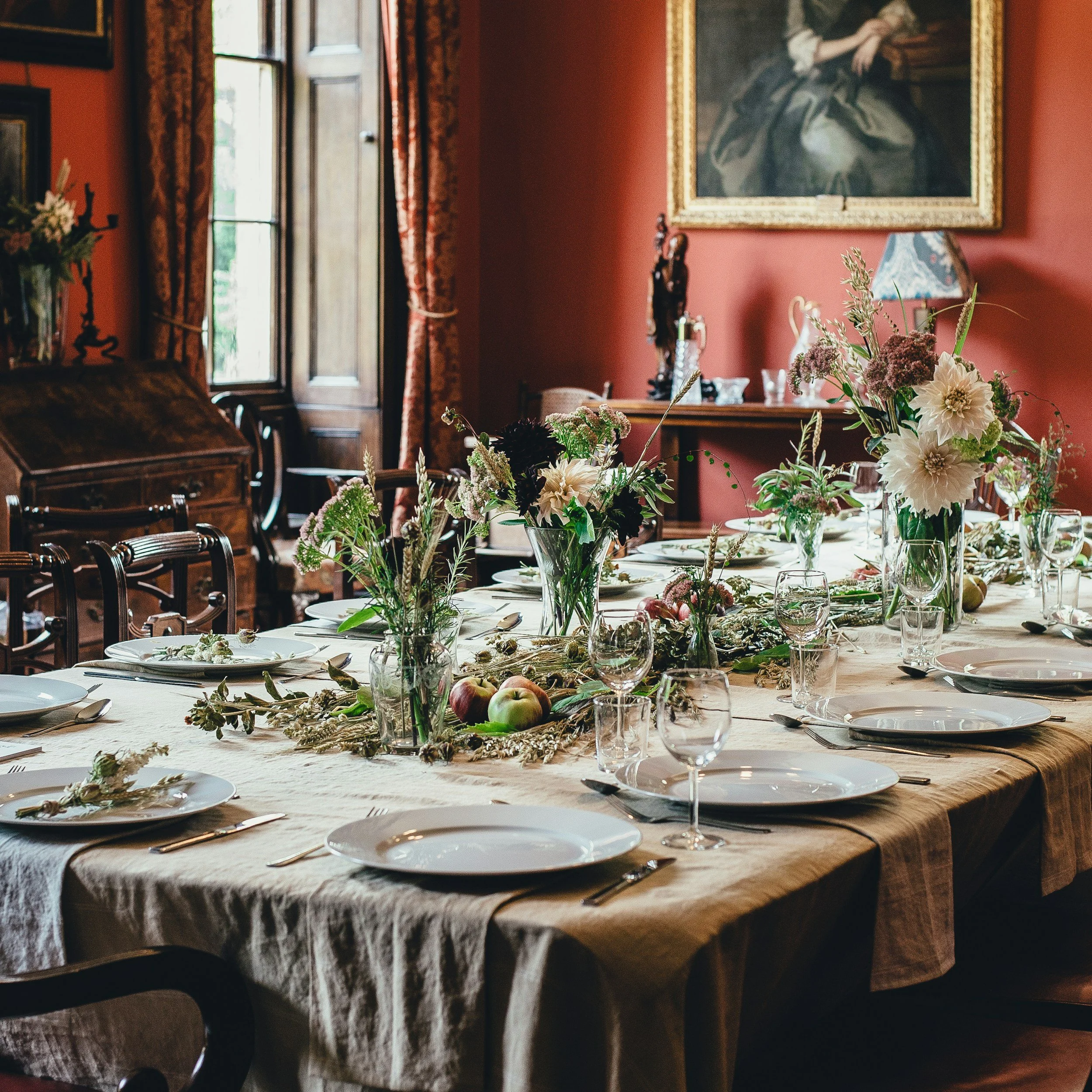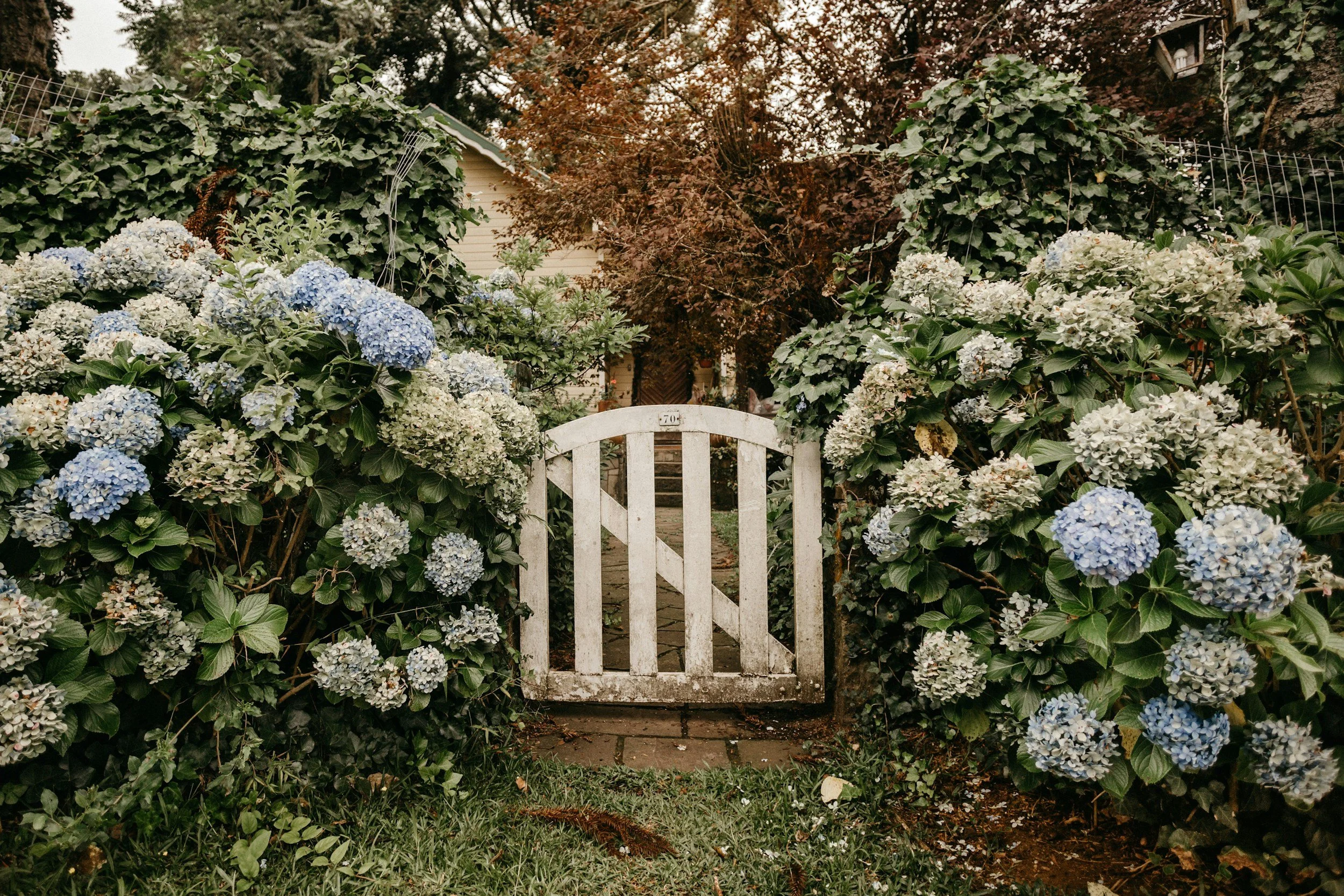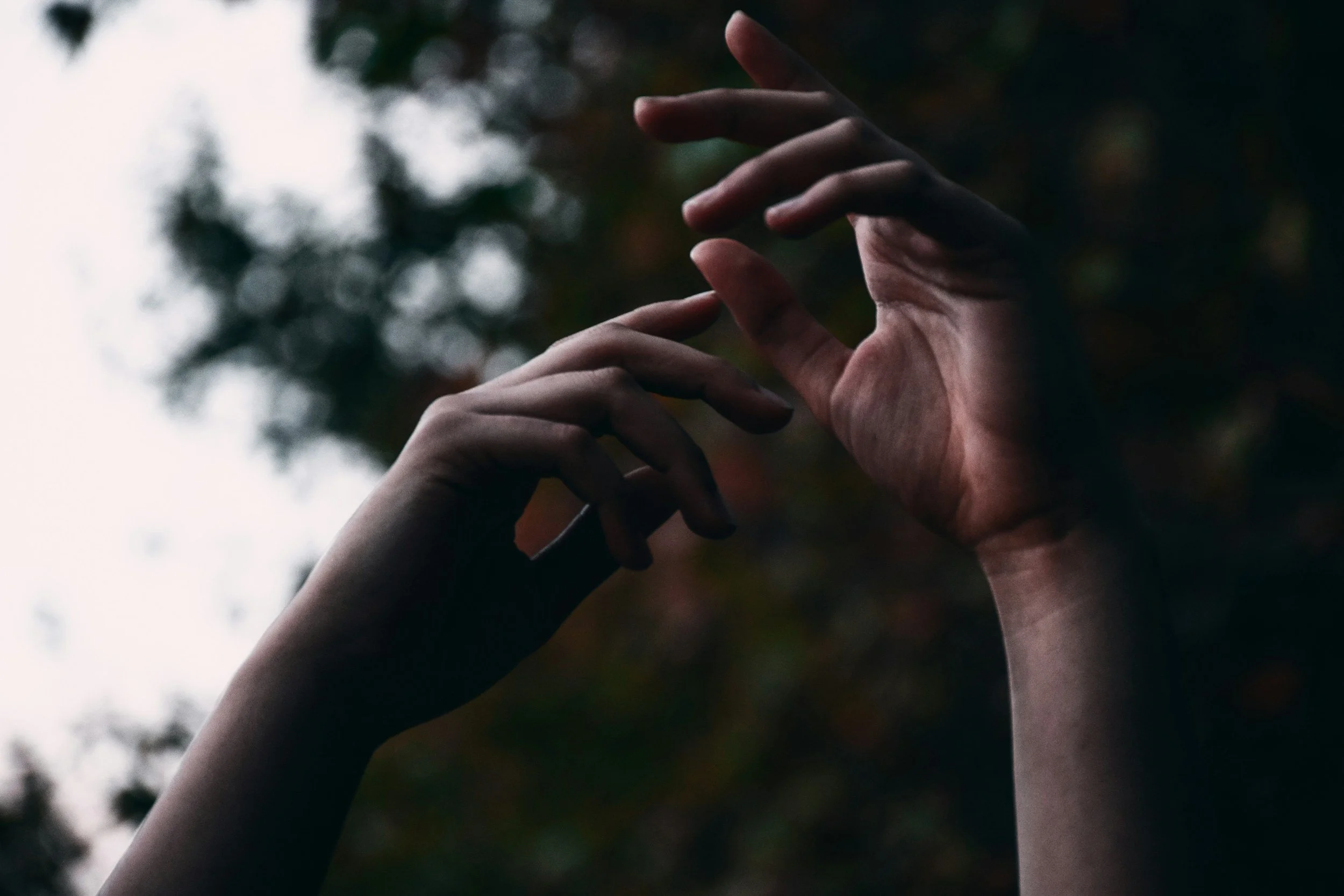The Lantern Games (#16)
Late September, 1912
There are days when the house feels more like a stage than a home, all surfaces polished, all expressions rehearsed. Today was such a day.
The staff moved quietly, not out of deference, but out of long habit. The silver was laid, the flowers arranged. Everything bore the appearance of order, though nothing within me felt so. The air had turned cool these past few mornings, the kind of chill that carried with it the early breath of autumn. Even the trees seemed to prepare themselves for change.
Lord Bergamot was absent for most of the morning, having taken himself to the club for matters I was not invited to understand. He left with a note about guests and appearances, and a vague instruction to look well and not overdo the colours. He does not notice what I wear, only what it suggests to others. I complied, of course. It is easier.
The house was mine for a stretch of hours, and yet I felt more like a visitor than its mistress. I took tea in the blue parlour and tried to read, but the words refused to settle. The wind tapped against the windows and stirred something restive within me. I rose and crossed to the conservatory, the air thick with memory, with lavender still hanging from the edge of summer. I did not linger.
By late afternoon, I made my own preparations for the evening’s event. Lord Bergamot had sent word he would not attend after all, citing a last-minute obligation that could not be helped. I did not press him. He had little interest in such gatherings, and even less in appearing by my side unless necessity demanded it.
And so, I went alone. The footmen packed a wrap and a fan, and the carriage was readied for half-past six. These twilight affairs are a tradition of Lady Elowen’s, always timed to the equinox, as though in defiance of the darkening year. The invitations spoke of lanterns, of music, of laughter. I had accepted out of courtesy.
I dressed in pale grey, with a bodice of antique lace and sleeves that trailed. My maid twisted my hair higher than usual, and for once I let her. It is easier not to see my own reflection. I wore no scent. I find the night has its own perfume.
I arrived as the sun began to tip beneath the horizon, casting the garden in amber light. Lanterns had already been strung between the trees — globes in soft hues, swaying gently from the early breeze. There was music somewhere, faint and lilting. Laughter, too. Lady Elowen greeted her guests with that gracious intensity she wears like a second skin. She moves through her own gatherings like an empress disguised in silk — watching, arranging, knowing more than she lets on.
I will write more of what followed — of the lanterns, of the game, of the question that turned everything. But first I must speak of what it felt like to arrive among so many who knew me only by name and placement. I felt not quite unseen, but partially drawn, as though I existed in half-light. The sort of recognition one gives to a familiar painting whose name cannot be recalled. It is a peculiar thing, to be looked at without truly being seen. Except by one.
And he was there. Of course he was.
The evening unfolded with a sort of deliberate charm, each element arranged to appear effortless. A quartet played beneath the wisteria arbor, the notes barely rising above the murmur of conversation. Footmen in white gloves passed trays of champagne and lavender cordial. Lanterns swayed in the trees like soft orbs of thought, and beneath them, the guests moved as if within a dream — slow, silken, and half-illuminated.
Lady Elowen had arranged a game, as she always did, to usher in the darker season with a flicker of whimsy. She called it “The Lantern Game.” Each guest would draw a slip of paper from a silver bowl; each slip bore a question. You would then be paired — not chosen, paired — and walk the garden path beneath the lanterns, sharing your answer with the one who walked beside you.
I had not expected to draw a question like mine. It read: “What would you ask for, if you had no fear?”
I folded it slowly, holding the words in my palm like a pulse.
Lady Ameline presided over the pairings, having volunteered — or rather insisted — on drawing names. She stood beside the silver bowl with a serene expression that did not quite mask her purpose. I had seen her watching earlier, had felt her gaze flicker between me and the lawn where Isobel Sterling stood with her shoulders turned slightly toward Yates. She had been laughing — that too-bright sound girls make when they have not yet learned what it costs to be admired.
Ameline saw it. Saw me.
Her fingers moved deliberately, drawing slips and pairing guests with a composure that verged on theatrical. No one questioned her. No one ever does. She called names with a graceful cadence, as though the entire event were a scene she had scripted in advance.
Lady Elowen watched on with the smile of someone who knew precisely what she had allowed.
Miss Daldridge was paired with one of the Whitmoore sons. Isobel Sterling, glowing in soft blue, was joined with a naval officer who looked far too earnest to be trusted with a secret.
Then it came — the pause that told me before I heard it.
“Lady Bergamot and Mr. Everett.”
There was no pause, no murmur of surprise. Just the steady hush of a gathering too polite to acknowledge its own daring.
Yates approached without hesitation. His bow was correct, his expression unreadable. He offered his arm, and I took it.
We stepped into the path lined with lanterns, their glow catching on leaves that had just begun to curl. The garden was quiet in that stretch, just far enough from the music, just close enough to the house to remember who might still be watching. The music drifted faintly from the wisteria arbor, just loud enough that you could still tell secrets and pretend they had not been heard.
I held the question in my gloved hand, but I did not read it aloud. He glanced at it once, then at me.
“Shall I begin?” he asked.
I shook my head. “No. It is better if I do.”
And I did. I told him what the slip had said. I did not say what it meant.
He was silent for a moment, then asked, “And what would you ask for, if you had no fear?”
I smiled, but it did not reach my eyes. “You know I cannot answer that.”
“That is not how the game is played,” he said, and there was an edge now — a frustration just beneath the civility.
“Then I suppose the game was not made for people like me.”
His gaze sharpened. “Or perhaps you simply refuse to play by any rule that asks for honesty.”
I stiffened. “That’s rich, coming from a man who hides behind courtesy and defers to silence whenever things become too real.”
He gave a short, bitter laugh. “You think I am hiding? I stand here, asking — practically begging — for the truth you claim to bury.”
“And you,” I returned, “are insufferable. Walking about as though you are the only one burdened by consequence.”
“I am not burdened by consequence,” he said. “I am burdened by you.”
The words struck, too sharp. I stepped forward, then back again, unsure whether to lash or to leave.
He held still, though his jaw worked. “Say it,” he said. “Say what you want.”
“I cannot,” I hissed. “And you know why.”
We walked on a few paces more, the gravel crunching softly beneath our feet. The lanterns above us swayed in the breeze, their light shifting over his face, his collar, the curve of his wrist just brushing mine. I felt the nearness of him like heat, and hated myself for noticing.
He stopped walking. Just for a moment. And I stopped, too.
“There are other ways to live,” he said. “You do not have to vanish inside a life that was never made for you.”
I felt the sting of his words more deeply than I meant to show.
“And what would you have me do?” I asked, turning to face him fully. “Shatter it all? Abandon a name, a house, my reputation — simply to chase something we have not even dared name?”
His expression shifted, his eyes darker now in the flickering lantern light. “Not if you cannot bear it. But I would have you choose yourself. Just once.”
I exhaled, sharp and low. “You speak as if choosing myself were as simple as stepping out for air.”
“Is it not?” he replied. “You do it for him. Choose him. Every day. Even now.”
My chin lifted, involuntary. “I owe him this duty.”
He stared at me for a long moment, and when he spoke again, it was quieter. Rougher.
“You owe him nothing. Do you know where he spends his days while you go to balls and dances and garden parties alone?”
I did not answer.
“Not always at the club. There are… women. Often. It is not well-hidden. Only ignored.”
I looked at him then, unflinching. “Yes. I know.”
He blinked, searching my face for some sign of hurt, some wound he could call unjust.
“When you do not love the man you are tied to,” I continued, “you do not grieve where he lays.”
That silenced him. And for a moment, it silenced me too.
“And still, you truly believe that you owe yourself nothing?”
His voice was still quiet, but the edges of it were no longer smooth. It struck something within me, that heat I have spent months tamping down beneath civility. It flickered now, licking the edges of my composure.
I turned away, only half a step. “It is not the same risk for me as it is for you.”
“No,” he said. “Because I am not the one pretending.”
The words snapped like a thread. I looked back at him, and for once, let my anger rise to the surface.
“Then why do you linger?” I demanded. “If I am so lost, so absent from myself — why keep walking beside me?”
He didn’t flinch. “Because despite everything, I still believe you will turn.”
The silence between us swelled.
“You are very sure of yourself,” I said.
“I am not sure of anything,” he said. “Except for you.”
I could not bear the weight of it. The certainty in his voice was a mirror I did not wish to look into. I turned on my heel.
“Then perhaps you do not know me at all,” I said, and moved to walk away.
But his hand caught my arm.
Not harshly. Not possessively. But with enough force to stop me.
“Lillian,” he said — and the sound of my name on his lips halted my breath.
I turned back, sharply. Too close.
He stood there, disheveled in a way I had never seen. His collar slightly askew. His eyes wild with some unnamed emotion. We were inches apart.
“You do not get to disappear,” he said. “Not tonight.”
The lanterns flickered above us. The garden stretched quiet around us, the path now empty behind a hedge. I could feel his breath. I could see the small tremor at the corner of his jaw.
“Let me go,” I whispered.
He did not.
“Tell me you do not feel it,” he said.
I opened my mouth. But no sound came.
The silence said it all.
He let go first.
But neither of us stepped back.
He stood there, eyes locked on mine, and I realised I had never seen him like this — not composed, not reserved, but burning. He was unravelled, just enough to show me what he had hidden beneath all that quiet control.
“Say it,” he said again, softer this time. “Even if it breaks everything.”
I shook my head, barely. “You have no idea what I would lose.”
He swallowed hard. “And yet here we are. Inches apart. Still pretending it is not already lost.”
I wanted to strike him. I wanted to kiss him. I did neither.
Instead, I stepped back — only slightly — just enough to feel the ache of distance again.
The lantern light caught the edge of his profile, making his jaw appear even sharper as it ticked in frustration.
“We should return,” I said, though I made no move to do so.
His voice dropped, low and aching. “You are the only secret that does not sit quietly in me. The only silence that grows louder with time.”
And then, at last, we turned. Not together. Not quite. But toward the same path.
He stepped away — not in anger, but in agony.
And I let him go.
The path back to the others felt too short, and too long. We walked in silence, close enough to seem cordial, distant enough to pass as composed. My gloves trembled where they brushed my skirt. I did not look at him again.
By the time we returned, the lanterns had dimmed further, and the music had softened to a gentle murmur. Isobel was laughing with one of the officers near the punch table, her cheeks flushed with something other than the evening air. Lady Ameline caught my eye and gave the smallest tilt of her head — not in question, but in understanding.
We did not speak again that night, Yates and I. But I felt him across every breath. In every glance that was not offered. In the stillness that followed me even in motion.
When I returned home, the lamps were still lit in the corridor, and the air inside the house was dry with the scent of old hearth ash and unopened windows. Lord Bergamot’s quarters were dark. I passed them without pause.
I did not undress. I sat by the window in my lace and silk, my hair still pinned, and let the chill in the glass press against my palm. Below, the garden was quiet. Not empty — never empty — but still.
The ache had not lessened. It had only changed its shape.
And I do not know how long I will bear it.
But I know that for now, I will.
—L.B.
You Might Also Love…
Read all of The Violet Letters here:
Copyright Notice:
© 2025 Lady Bergamot's Library. All rights reserved.
This work is the intellectual property of Lady Bergamot's Library (Jessica Jones) and may not be reproduced, copied, pasted, or rewritten without prior written permission.
Links to this content may be shared, but the content itself may not be copied, republished, or distributed elsewhere.
All content on this site, including but not limited to text, images, and original works, is protected by copyright law.
































I was in fourth grade when I found A Series of Unfortunate Events. I talked about them on AIM with my best friend, devoured each new hardcover, and felt like someone finally trusted me with something strange and brilliant.